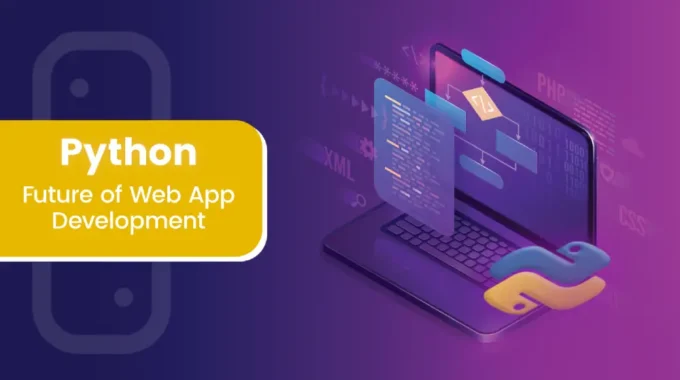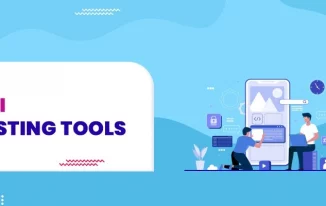Python web development remains a popular choice in 2024 for creating strong and scalable web applications due to its simplicity, adaptability, and huge ecosystem of modules and frameworks.
Python web development advantages include less code for more functionality, substantial community and library support, powerful frameworks, a high-level programming language that is simple and easy to read, and low cost.
However, there are certain disadvantages to consider, such as limits in mobile app and game creation, potential performance issues, memory use concerns, difficulties with error detection, and perceived simplicity-related negatives.
Despite these shortcomings, Python remains a prominent player in the web development space, providing developers and businesses with a compelling platform for creating innovative and feature-rich web applications.
Pros of Python Web App Development
Certainly! Here's a detailed description for each of the points regarding the pros of Python web app development:
Less Coding, More Functions
Python stresses simplicity and readability, resulting in less verbose code than other programming languages. Its compact syntax enables developers to get more done with fewer lines of code.
Python's beautiful design and straightforward structure allow developers to concentrate on solving business challenges rather than becoming bogged down in convoluted syntax. This leads to quicker development cycles and lower maintenance overhead, making Python an excellent choice for web app development.
Massive Community Support
Python has a large and active developer community globally. This community offers substantial support via online forums, discussion groups, tutorials, and documentation. Developers may easily solve their difficulties, seek help, and share knowledge within the Python community.
Furthermore, the Python community is always contributing to the language's evolution by creating new libraries, frameworks, and tools. This strong support network ensures that developers have access to resources and assistance at all stages of web app development.
Library Support
Python provides a diverse ecosystem of tools and modules that make web app development easier. These libraries provide a wide range of functionality, including web frameworks, database access, data manipulation, authentication, and more.
Flask and Django, for example, are popular Python web frameworks that include pre-built components for developing web applications, whereas Requests simplifies HTTP requests and responses. Using these libraries allows developers to accelerate development, decrease code complexity, and ensure the stability of their online applications.
Frameworks
Python includes a number of strong web frameworks that help to expedite the process of developing online applications. Two of the most popular frameworks are Flask and Django. Flask is a lightweight and adaptable micro-framework designed for small to medium-sized projects, providing core functionality for web development with few dependencies.
Django, on the other hand, is a powerful full-stack framework with built-in authentication, database management, URL routing, and other capabilities, making it perfect for large-scale and complicated online applications. These frameworks give developers the tools and structure they need to build secure, scalable, and maintainable web apps quickly.
High-Level Programming Language
Python is a high-level programming language, which means that it abstracts away many low-level aspects like memory management and hardware connections, making code easier to create and understand. This high-level abstraction enables developers to solve challenges at the conceptual level rather than becoming mired down in technical minutiae.
Python's simplicity and readability help to accelerate development cycles, minimize debugging time, and enhance code maintainability. Python's dynamic typing and automatic memory management also simplify the development process, allowing developers to iterate quickly and adapt to changing requirements.
Cost-effective Programming Language
Python is a cost-effective programming language for web app development due to various aspects. For starters, Python is open-source and free to use, so there are no licensing fees. Python's simplicity and readability also lead to speedier development cycles, which lowers software development labor costs.
Furthermore, Python's substantial library support and community resources enable developers to leverage existing tools and components, further decreasing development time and costs. Overall, Python's price makes it an attractive alternative for enterprises and organizations wishing to develop high-quality online applications without breaking the bank.
Cons of Python Web App Development
Certainly! Let's delve into the details of each point regarding the cons of Python Development
Doesn’t perform well on mobile
Python is not the best language for developing mobile apps, despite its versatility for web programming. Swift, Objective-C, and Java/Kotlin are the primary programming languages used by mobile platforms such as iOS and Android. Although frameworks such as Kivy and BeeWare enable Python to be used for mobile app development, they may not provide the same performance or native user experience as apps written in platform-specific languages.
Slow
Python is an interpreted language, meaning it is executed line by line by an interpreter during runtime. This interpretive nature can result in slower execution times than compiled languages such as C++ or Java. While Python's performance has improved over time, it may still be slower than other languages in certain situations, notably for CPU-intensive jobs or performance-critical applications.
Memory Usage
Python has higher memory utilization than several other programming languages. This is due in part to Python's dynamic typing and automated memory management, which need additional memory overhead to store type information and manage memory allocations and deallocations, respectively.
As a result, Python might not be the most memory-efficient option for applications with stringent memory limits or those demanding optimal
Mobile and game development is not possible
Python is adaptable and widely used in a variety of disciplines, including web development, data research, and scripting, but it may not be the greatest option for mobile app or game development.
As previously said, mobile platforms mostly rely on platform-specific languages and frameworks, whereas game development frequently chooses languages such as C++ or C# for performance reasons. Python can be used to create certain sorts of mobile apps or games, although it may not provide the same performance or capabilities as other languages designed for these reasons.
Simplicity Is a Problem
Python's simplicity and readability can be regarded as limitations in certain settings. Python's high-level abstraction and language features may not always provide the fine-grained control or low-level optimization that some applications require.
Furthermore, Python's simplicity may result in code that is unnecessarily abstracted or difficult to optimize for performance-critical applications.
Error Detection Problem
Python's dynamic typing and absence of compile-time type verification might lead to undetected problems during runtime. This can make debugging difficult and can generate bugs or runtime issues in larger codebases. While static analyzers and testing frameworks can assist to reduce some of these concerns, Python's dynamic nature can still make error discovery and avoidance difficult.
Summary
While Python is a powerful and versatile language suitable for a wide range of web applications, it does have some limitations and drawbacks, such as performance considerations, memory usage concerns, limitations in mobile and game development, potential simplicity issues, and error detection challenges. However, these disadvantages may be minimized or outweighed by Python's benefits and the specific needs of a given project.
Python web app development has numerous benefits, including less coding with more functionality, extensive community and library support, powerful frameworks, a high-level programming language with simplicity and readability, and low cost, making it an excellent choice for developing robust and scalable web applications.
Best Python Development Companies in India With India rising as a worldwide software development hub, Python development companies are thriving, providing a wide range of services to both domestic and foreign clients.
These organizations use India's enormous pool of qualified Python developers and competitive cost advantage to deliver high-quality Python-based solutions to a variety of industries.
Python development businesses in India provide to a wide range of client demands, from web development and data analytics to machine learning and artificial intelligence, offering end-to-end services from project inception to deployment and maintenance.
With a strong emphasis on quality, innovation, and customer satisfaction, these organizations play an important role in pushing Python technology adoption and contributing to India's position as a vital player in the global software development ecosystem.





